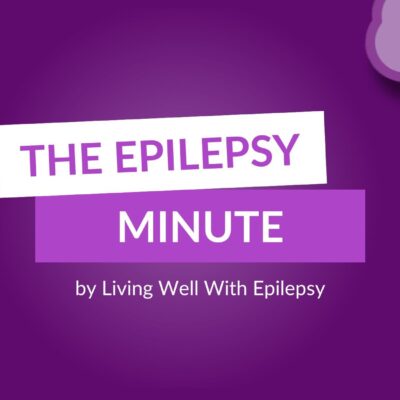This story is sponsored by Epilepsy Wellness Advocates and The Charles L. Shor Epilepsy Opportunity Fund
 When Mindfulness meets Epilepsy Management
When Mindfulness meets Epilepsy Management
Mindfulness, a core Dialectical Behavior Therapy (DBT) skill, involves staying present and fully engaged in the moment. For individuals with epilepsy, mindfulness can be difficult but it can also be particularly beneficial in managing our seizure threshold. By practicing mindfulness, we can become more aware of our body’s signals, allowing us to detect early signs of seizures and respond accordingly. This heightened awareness can also help reduce anxiety and stress, which for some people are common seizure triggers.
As we know, Epilepsy is a neurological condition that requires comprehensive management strategies to maintain health and quality of life. In fact, anyone who has been on the journey to simply get a diagnosis of epilepsy knows this is true. It may sound crazy, but combining neurology with mindfulness through DBT skills can help manage seizure triggers and stress.
Take a Second to Share Your Thoughts
What This Does Not Mean
This does NOT mean you stop taking your meds because you have become super effective at meditating. Or you bail on visits with your neurologist because you found a super cute meditation outfit. This is not okay and will definitely not help your seizure management.
Benefits of Mindfulness for Epilepsy
There are many benefits of mindfulness for epilepsy management. First off, according to the APA, mindfulness can help reduce stress and anxiety. Stress and anxiety are both known to exacerbate seizures. By staying present and focused, you can maintain a calm state of mind, reducing the likelihood of stress-induced seizures. One other note here: I don’t make any claim that this is easy. It takes practice. The stress of not knowing how seizures and side effects will impact your life is a big obstacle. This is just another tool to help manage that obstacle.
Secondly, mindfulness enhances your ability to recognize early seizure signs, enabling you to take proactive steps to manage your condition. This can involve adjusting your environment, taking medication, or engaging in calming activities to prevent seizures. All good things when these little changes can keep you safer. It does actually help to be a little more connected to your body. This can help you tune into what may come before seizures and give you a chance to get to a safe place.
Integrating Mindfulness into Your Daily Routine
Integrating mindfulness into your daily routine can lead to better health outcomes and a more balanced life. Start by setting aside a few minutes each day for mindfulness practice. It won’t be perfect at first. In fact it will be annoying. But if you can stick with it, using techniques such as deep breathing, body scans, and mindful observation once or twice a day you might find it helpful. Over time, these practices will become second nature, (I swear they will) helping you stay present and reduce stress throughout the day. They will help eventually.
The Mindful Approach to Epilepsy Management
Combining traditional neurology with mindfulness through DBT offers a unique approach to epilepsy management. This method addresses both the physical and emotional aspects of epilepsy, providing a comprehensive strategy for maintaining health and quality of life. By incorporating mindfulness into your routine, you can enhance your neurological care and improve your overall well-being.
Managing Epilepsy
By integrating skills like this into your daily routine, you can reduce stress, recognize early seizure signs, and improve your overall health. If you consider trying this, you might just discover the benefits of combining neurological care with mindfulness for a more balanced and effective epilepsy management strategy.









Margery Harrop
Best site I’ve see for epilepsy since diagnosed 53yrs ago. To relax minds bout seizures now not add to anxiety or what ifs bout our own. Think of all the geniuses thru history who also had seizures but no idea why. First explained 1920s when we knew nuff bout the brain to explain as a physical prob not a mental one. Was glad 53yrs ago we had any meds to help control. Had frequent severe ones once but always knew I’d be fine after. No one blanket statment bout any should be made all have diff types for diff reasons. Focus on your own relax mind by learning more to help. Let’s not go back to days of Alice in Wonderland Carroll felt his mind inspired him to write. A window to a world gone mad. Glad know better than that with real meds to help all kinds now.